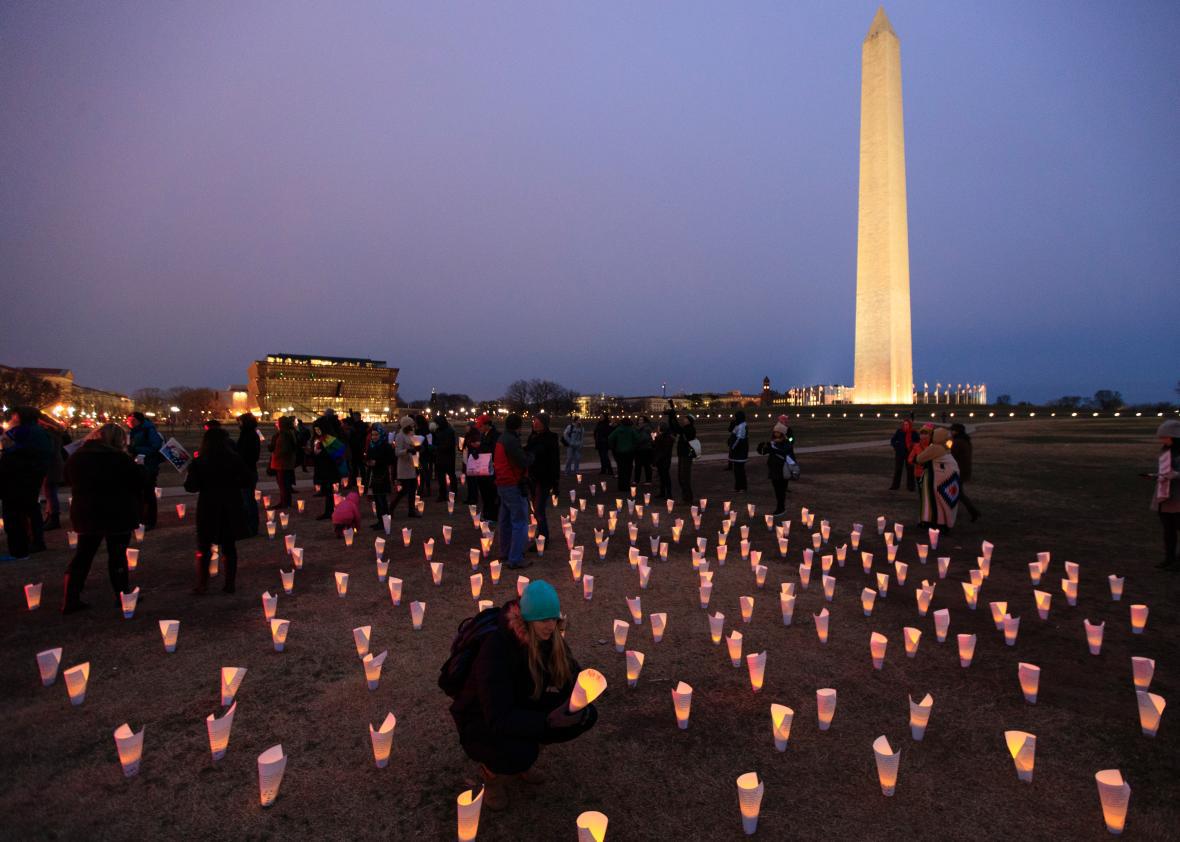Washington state filed a brief on Monday in response to the Justice Department’s attempt to reinstate Donald Trump’s Muslim ban at the U.S. Court of Appeals for the 9th Circuit. The brief argues persuasively that the executive order imposes “draconian restriction[s]” on lawful immigrants’ liberty in violation of due process and discriminates on the basis of their religion in violation of both equal protection and the First Amendment’s Establishment Clause. But the brief also includes a critical back-up argument—one rooted in the Supreme Court’s gay rights decisions.
“Even if the Order did not make suspect classifications [on the basis of religion],” the brief states, “it would be illegal because ‘its sheer breadth is so discontinuous with the reasons offered for it that the [Order] seems inexplicable by anything but animus toward the class it affects.’ ” That quote comes straight out of Romer v. Evans, in which the Supreme Court struck down a Colorado law that prohibited local gay nondiscrimination ordinances. Colorado argued that the ordinance was meant to protect free association and conserve resources “to fight discrimination against other groups.” The court found these explanations to be pure pretext, holding instead that the law’s sweep “raise[s] the inevitable inference that the disadvantage imposed is born of animosity toward the class of persons affected.” Washington now makes a similar argument: The government claims that its ban is meant to fight terrorism—but the astonishing scope of the order hints that it is really motivated by animus toward Muslims and refugees.
Washington then notes that although the ban “cites the attacks of September 11, 2001, as a rationale, it imposes no restrictions on people from the countries whose nationals carried out those attacks.” This, too, contributes to a constitutional infirmity: The order is “ ‘at once too narrow and too broad,’ and cannot withstand any level of scrutiny.” That cite comes from United States v. Windsor, in which the Supreme Court struck down the federal same-sex marriage ban. Washington goes on to quote Windsor’s core holding: “The Constitution’s guarantee of equality must at the very least mean that a bare [legislative] desire to harm a politically unpopular group cannot justify disparate treatment of that group.” Trump’s own comments make clear that his executive order was spurred by suspicion of Muslims and that its broad language is merely meant to disguise its true, discriminatory intent.
Decisions like Romer and Windsor may have involved gay rights, but the principles they expounded aid all who seek refuge in the Constitution’s promise of “equal protection of the laws.” Just as gay Americans were able to vindicate their right to equality in years past, immigrants and refugees today can use the Constitution as a shield against invidious government discrimination. Civil liberties are not a zero sum game. And securing freedom for one vulnerable minority helps to bolster freedom for us all.
